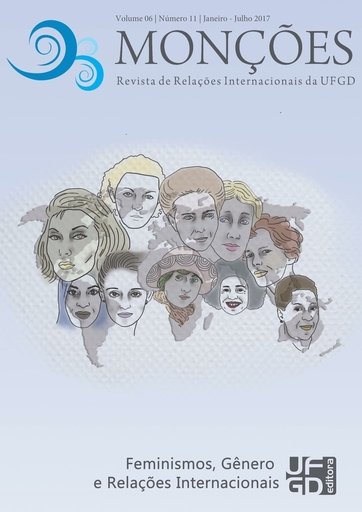Preventing “protectors to become predators”: can the United Nations stop sexual abuse and exploitation by un peacekeepers?
DOI:
https://doi.org/10.30612/rmufgd.v6i11.6917Abstract
The article, using as theoretical framework Lauren Wilcox's view of bodies in International Relations as well as discussions from postcolonial and feminist perspectives, examines how sexual exploitation and abuse (SEA) occurs in the United Nations (UN) peacekeeping operations and how the organization has dealt with this issue. These practices are documented since the 1990s and affect mainly women and children in areas where UN peacekeeping missions are on the ground. The article concludes that the causes of this phenomenon are three: the context of vulnerability, the image that UN peacekeepers have of themselves and of the local population and the impunity enjoyed by them. Moreover, the answers given by the UN were reactive and not proactive. They depend on the goodwill of states and offer little support for survivors. We conclude that the UN and its peacekeeping missions are embedded in a Eurocentric and patriarchal logic where the bodies of locals are gendered and racialized. The UN would have the means to ensure that such violations do not occur if it had adopted tougher responses earlier such as an effective responsibilizing system and the Victims Fund, but changing the way the local population is perceived is necessary to avoid further SEA.
Downloads
Downloads
Published
How to Cite
Issue
Section
License
- Os autores e autoras mantêm os direitos autorais e concedem à revista o direito de primeira publicação, com o trabalho simultaneamente licenciado sob a Creative Commons Atribuição-NãoComercial-CompartilhaIgual 3.0 Brasil. que permite o compartilhamento do trabalho com reconhecimento da autoria e publicação inicial nesta revista.
- Autores e autoras têm autorização para assumir contratos adicionais separadamente, para distribuição não-exclusiva da versão do trabalho publicada nesta revista (ex.: publicar em repositório institucional ou como capítulo de livro), com reconhecimento de autoria e publicação inicial nesta revista.
- Autores e autoras têm permissão e são estimulados a publicar e distribuir seu trabalho online (ex.: em repositórios institucionais ou na sua página pessoal) a qualquer ponto antes ou durante o processo editorial, já que isso pode gerar alterações produtivas, bem como aumentar o impacto e a citação do trabalho publicado, porém invariavelmente com o reconhecimento de autoria e publicação inicial nesta revista.


